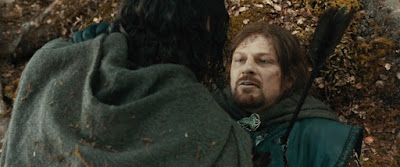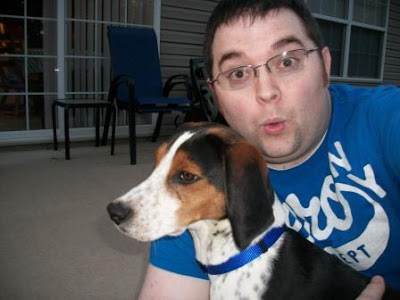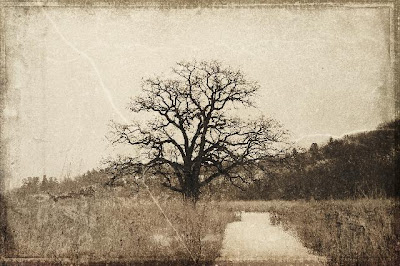LotR Lesson #1: What You've Done Is Not As Important As What You Do
It's been a spell since I last posted, so to sum up, I'm planning a series of short-ish posts about takeaways I got from my latest watch of "The Lord of the Rings" movies.
This is the first of those posts.
Part of the very emotional climax of "The Fellowship of the Ring" has Boromir, pierced by three enormous arrows, lying on the ground while begging Aragorn for forgiveness. "They took the little ones...Frodo...where is Frodo?" When Aragorn tells him he let Frodo go, Boromir offers his dying confession:
"Then you did what I could not. I tried to take the Ring from him..."Forgive me. I could not see it. I have failed you."
This scene always cuts right to my heart and often brings tears to my eyes. You can watch it here - make sure you have tissues handy. But this time, it's Aragorn's reply to Boromir here that has stayed with me in the days since I watched:
"No...you fought bravely. You kept your honor."
Did Boromir keep his honor? From Rivendell across the Pass of Caradhras to the slopes of Amon Hen, he has sought to steal the Ring and take it home, where his kingdom would wield it (in vain) against the greatest enemy in Middle-Earth. He even tried to take the Ring by force, only failing when Frodo used the Ring to escape. That he was foiled doesn't necessarily absolve him. He could have slunk away then, ashamed of his deeds and doomed to return home a failure.
He didn't. He instead placed himself between Merry and Pippin and the attacking Uruks, defending them against the onslaught, not letting even those huge arrows stop him until he couldn't possibly continue.
I can't imagine the feelings of failure that came to him in those moments, as he watched the enemy take the Hobbits away. Forget he had fought more fiercely than most other Men could have hoped to: he'd let his two friends be taken captive, and more than that, he'd failed his own city, his kingdom, his father:
"It is over," he says to Aragorn. "The world of Men shall fall. All will come to darkness. My city will fall."
In his own eyes, Boromir was to die in disgrace, having fallen short as a son of Gondor, as a defender, as a soldier, as a friend. But for Aragorn, he'd have died thinking he was as low as it gets.
"You kept your honor."
Aragorn's words here - and his promise to do everything in his power to prevent Gondor - "our people" from falling must have been to Boromir as the light of dawn after the darkest night. And I, for one, believe Aragorn. I believe Boromir kept his honor. I believe his dying acts absolutely redeemed his earlier missteps with regards to the One Ring, and that he died as worthy of honor and praise as anyone.
Like the Good Book says, "Greater love hath no man than this, that a man lay down his life for his friends."
I could get very Gospel-centered with this. The idea of redemption is so very important to me, and it's because of my belief in Jesus Christ and His Atonement. But I don't intend to go down that road - that's a whole series in and of itself. I want to focus on the idea that it's never too late to change, and that change can matter here and now, regardless of how little time we might have left.
It's why I love the story of "A Christmas Carol" so much - here's Scrooge, a man at the end of his life (likely - he's old and probably hasn't taken care of himself) who finds in himself the power to change and turn his life, his worldview, around completely. We don't learn how much longer he lived after that fateful night - it might have been a year, or several. We only learn "he became as good a friend, as good a master, and as good a man, as the good old city knew, or any other good old city, town, or borough, in the good old world."
What we've done is not as important as what we do.
I don't want to downplay the effects of our past actions on other people. It may be what we've done was hurtful, painful, damaging or destructive to someone else. And that takes time to heal, to change. Sometimes it doesn't change. Hopefully it will, but maybe it won't. And it's not up to us to decide when we're forgiven; it's up to the people we hurt.
Scrooge didn't get to decide if, when or how the Cratchits or any of his other mistreated clients and family forgave him. He could only show his changed nature by his actions, and he did. Same with Boromir - I bet if he'd survived the Battle of Amon Hen, he'd have been right by Aragorn's side the rest of the way, fighting as hard as he could to protect Merry and Pippin, to defend Rohan, and certainly to defend Gondor and give Frodo as much a chance as he could.
If we are to change, if we are to take the first steps of making ourselves better than we were, we need to decide what we do moving forward will be better than what we did before.
In that, what we do is and will be more important than what we've done.
This is the first of those posts.
Part of the very emotional climax of "The Fellowship of the Ring" has Boromir, pierced by three enormous arrows, lying on the ground while begging Aragorn for forgiveness. "They took the little ones...Frodo...where is Frodo?" When Aragorn tells him he let Frodo go, Boromir offers his dying confession:
"Then you did what I could not. I tried to take the Ring from him..."Forgive me. I could not see it. I have failed you."
This scene always cuts right to my heart and often brings tears to my eyes. You can watch it here - make sure you have tissues handy. But this time, it's Aragorn's reply to Boromir here that has stayed with me in the days since I watched:
"No...you fought bravely. You kept your honor."
Did Boromir keep his honor? From Rivendell across the Pass of Caradhras to the slopes of Amon Hen, he has sought to steal the Ring and take it home, where his kingdom would wield it (in vain) against the greatest enemy in Middle-Earth. He even tried to take the Ring by force, only failing when Frodo used the Ring to escape. That he was foiled doesn't necessarily absolve him. He could have slunk away then, ashamed of his deeds and doomed to return home a failure.
He didn't. He instead placed himself between Merry and Pippin and the attacking Uruks, defending them against the onslaught, not letting even those huge arrows stop him until he couldn't possibly continue.
I can't imagine the feelings of failure that came to him in those moments, as he watched the enemy take the Hobbits away. Forget he had fought more fiercely than most other Men could have hoped to: he'd let his two friends be taken captive, and more than that, he'd failed his own city, his kingdom, his father:
"It is over," he says to Aragorn. "The world of Men shall fall. All will come to darkness. My city will fall."
In his own eyes, Boromir was to die in disgrace, having fallen short as a son of Gondor, as a defender, as a soldier, as a friend. But for Aragorn, he'd have died thinking he was as low as it gets.
"You kept your honor."
Aragorn's words here - and his promise to do everything in his power to prevent Gondor - "our people" from falling must have been to Boromir as the light of dawn after the darkest night. And I, for one, believe Aragorn. I believe Boromir kept his honor. I believe his dying acts absolutely redeemed his earlier missteps with regards to the One Ring, and that he died as worthy of honor and praise as anyone.
Like the Good Book says, "Greater love hath no man than this, that a man lay down his life for his friends."
I could get very Gospel-centered with this. The idea of redemption is so very important to me, and it's because of my belief in Jesus Christ and His Atonement. But I don't intend to go down that road - that's a whole series in and of itself. I want to focus on the idea that it's never too late to change, and that change can matter here and now, regardless of how little time we might have left.
It's why I love the story of "A Christmas Carol" so much - here's Scrooge, a man at the end of his life (likely - he's old and probably hasn't taken care of himself) who finds in himself the power to change and turn his life, his worldview, around completely. We don't learn how much longer he lived after that fateful night - it might have been a year, or several. We only learn "he became as good a friend, as good a master, and as good a man, as the good old city knew, or any other good old city, town, or borough, in the good old world."
What we've done is not as important as what we do.
I don't want to downplay the effects of our past actions on other people. It may be what we've done was hurtful, painful, damaging or destructive to someone else. And that takes time to heal, to change. Sometimes it doesn't change. Hopefully it will, but maybe it won't. And it's not up to us to decide when we're forgiven; it's up to the people we hurt.
Scrooge didn't get to decide if, when or how the Cratchits or any of his other mistreated clients and family forgave him. He could only show his changed nature by his actions, and he did. Same with Boromir - I bet if he'd survived the Battle of Amon Hen, he'd have been right by Aragorn's side the rest of the way, fighting as hard as he could to protect Merry and Pippin, to defend Rohan, and certainly to defend Gondor and give Frodo as much a chance as he could.
If we are to change, if we are to take the first steps of making ourselves better than we were, we need to decide what we do moving forward will be better than what we did before.
In that, what we do is and will be more important than what we've done.




Comments
"Wherever you are, whatever you did
It's a page in your book, but it isn't the end"
(the rest of the song is good, but these lines get to the essence of your point here, I think)
Thanks for sharing your thoughts..